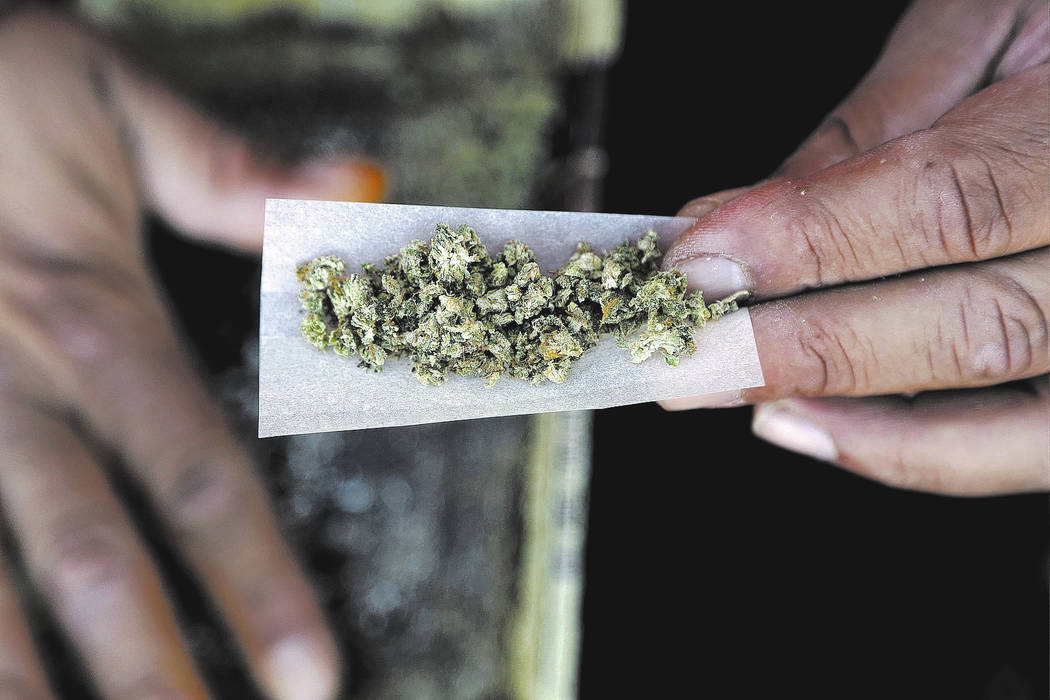EDITORIAL: No reason for confidentiality in Nevada pot licensing process
Legalized marijuana has become a lucrative business in Nevada — the first year of state-sanctioned pot sales saw the industry generate $425 million in revenue. It’s absurd, then, that the process by which the state Department of Taxation awards these valuable and limited licenses is shrouded in secrecy.
This month, the state granted an additional 61 conditional licenses to those hoping to open marijuana dispensaries, potentially doubling the number of retail outlets in Nevada. Yet information about those who won the lottery remains confidential. This is an affront to accountability and a recipe for corruption and cronyism.
To make matters worse, the secrecy is perfectly legal, according to the Nevada Supreme Court. Last year, the justices ruled against the Reno Gazette-Journal after the newspaper sued the city of Sparks for redacting the names of dispensary owners in a list of business license recipients. The justices held that a regulation in the Nevada Administrative Code mandates that the details involving medical marijuana licensees be kept confidential. Because all state recreational dispensaries also cater to medical marijuana clients, the ruling applies across the board.
This was news to Tick Segerblom, the former state senator who was the driving force behind the decriminalization of pot.
“I don’t think it was ever our intention to keep their names private,” he told the Gazette-Journal in August 2017. “You can’t have a situation where the state licenses somebody but we don’t know who we are.”
No kidding. How can anybody judge under the current arrangement whether the Department of Taxation — which regulates marijuana in Nevada — is adequately vetting applicants and not playing favorites or kowtowing to politically connected and powerful interests?
In fact, the regulation in question was meant to ensure confidentiality for doctors and patients when it came to medicinal pot. It wasn’t intended to allow anonymity for those awarded business licenses. But give the bureaucracy an inch, and the results are predictable. In the Gazette-Journal lawsuit, for instance, Sparks officials interpreted the law as broadly as possible, maintaining that secrecy was a safety necessity because the legal marijuana trade is an all-cash business.
Enough with the nonsense. There’s no legitimate reason that license recipients must be protected from scrutiny. The process should be as open and transparent as possible in order to promote impartiality and accountability. There’s nothing that can be done until 2019, but when lawmakers reconvene in February, they should make it a priority to rewrite the regulations to remedy an obvious mistake.




























